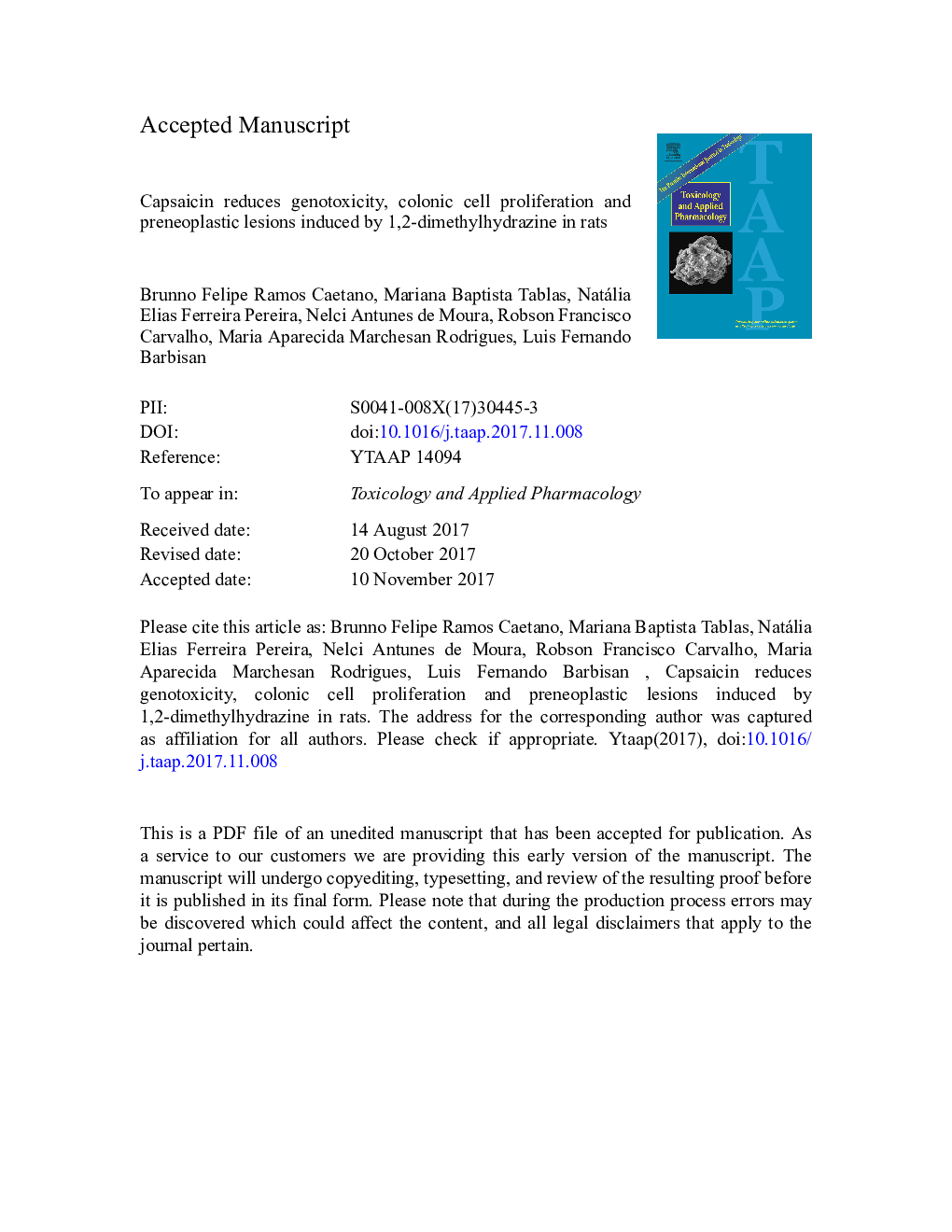| Article ID | Journal | Published Year | Pages | File Type |
|---|---|---|---|---|
| 8538989 | Toxicology and Applied Pharmacology | 2018 | 35 Pages |
Abstract
Capsaicin (8-Methyl-N-vanillyl-(trans)-6-nonenamide) is the major pungent ingredient found in chili peppers consumed worldwide. Most reports on capsaicin potential carcinogenicity have yielded inconsistent findings. Some studies have shown that capsaicin exerts anti-proliferative and pro-apoptotic effects on different cancer cell lines, while others have reported an association between capsaicin at high doses with mutagenicity and carcinogenicity. Thus, this study aimed at assessing the effects of capsaicin administration on 1,2-dimethyl-hydrazine (DMH)-induced colon carcinogenesis in male Wistar rats. Our results show that capsaicin administration, before and during carcinogen exposure, modified DMH-induced cytotoxicity and genotoxicity, promoting anti-proliferative and pro-apoptotic responses through the expression of the genes involved in apoptosis, cell cycle suppression and cell/tissue differentiation. Furthermore, capsaicin reduced aberrant crypt foci (ACF) number and multiplicity, although there were no differences in tumor incidence and multiplicity among the groups. Taken together, the results suggest that capsaicin may have a preventive effect against DMH-induced colorectal carcinogenesis.
Keywords
Related Topics
Life Sciences
Environmental Science
Health, Toxicology and Mutagenesis
Authors
Brunno Felipe Ramos Caetano, Mariana Baptista Tablas, Natália Elias Ferreira Pereira, Nelci Antunes de Moura, Robson Francisco Carvalho, Maria Aparecida Marchesan Rodrigues, Luis Fernando Barbisan,
